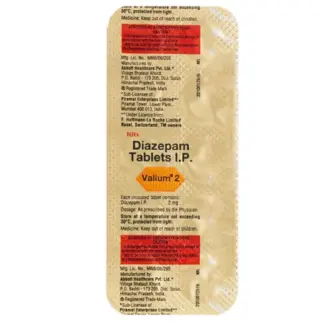
Nyquil and Diazepam are two commonly used medications that, when combined, can lead to severe and potentially life-threatening consequences. Nyquil, a popular over-the-counter cold and flu remedy, contains multiple active ingredients, including a sedating antihistamine. On the other hand, Diazepam, also known as Valium, is a prescription benzodiazepine drug used to treat anxiety, insomnia, and other conditions. Both drugs are classified as central nervous system (CNS) depressants, meaning they slow down brain activity and bodily functions. When taken together, the depressant effects of these drugs include can be amplified, increasing the risk of adverse reactions and posing significant health risks.
Understanding the Mechanisms of Action
Nyquil contains several active ingredients, including dextromethorphan (a cough suppressant), doxylamine succinate (a sedating antihistamine), and acetaminophen (a pain reliever and fever reducer). Doxylamine succinate, in particular, is a CNS depressant that can cause drowsiness and impair coordination and cognitive functions. Diazepam, on the other hand, works by enhancing the effects of gamma-aminobutyric acid (GABA), a neurotransmitter that inhibits brain activity, leading to a calming and sedative effect.
The Risks of Combining Nyquil and Diazepam
When Nyquil and Diazepam are taken together, their CNS depressant effects are compounded, leading to an increased risk of various adverse reactions. These risks include:
- Excessive Sedation and Drowsiness: The combination of Nyquil’s sedating antihistamine and Diazepam’s sedative properties can result in profound drowsiness, impaired coordination, and a decreased ability to perform tasks that require mental alertness or physical dexterity.
- Respiratory Depression: Both drugs can slow down breathing rates, and when combined, the risk of respiratory depression (abnormally slow or shallow breathing) is heightened, potentially leading to hypoxia (lack of adequate oxygen supply) and other life-threatening complications.
- Cognitive Impairment: The combined effects of Nyquil and Diazepam can significantly impair cognitive functions, such as memory, concentration, and decision-making abilities, which can be especially concerning in situations that require alertness and quick thinking.
- Increased Risk of Accidents and Injuries: The sedation and cognitive impairment caused by this drug combination can increase the risk of accidents, falls, and other injuries, particularly in activities that require coordination and alertness, such as operating machinery or driving.
- Potentiation of Other CNS Depressants: If Nyquil and Diazepam are combined with other CNS depressants, such as alcohol, opioid pain medications, or certain antidepressants, the risk of adverse effects is further amplified, potentially leading to coma or even death.
Drugs Interacting with Nyquil and Diazepam
Several other medications can interact with Nyquil and Diazepam, further increasing the risk of adverse effects. Some examples include:
- Monoamine Oxidase MAO Inhibitors (MAOIs): These antidepressants can interact with the dextromethorphan component of Nyquil, potentially causing serious side effects like serotonin syndrome or hypertensive crisis.
- Sedatives and Hypnotics: Drugs like zolpidem (Ambien), eszopiclone (Lunesta), and others that depress the CNS can amplify the sedating effects when combined with Nyquil and Diazepam.
- Opioid Pain Medications: Opioids like oxycodone, hydrocodone, and others can further risk of cns depression when combined with this drug combination, increasing the risk of respiratory depression and sedation.
- Antidepressants and Antipsychotics: Some medications used to treat mental health conditions, such as selective serotonin reuptake inhibitors (SSRIs) and antipsychotics, can interact with Nyquil and Diazepam, potentially causing increased side effects or altering the effectiveness of the drugs.
Precautions and Recommendations
To minimize the risk of adverse effects, it is crucial to exercise caution when considering the use of Nyquil and Diazepam together. Here are some important recommendations:
- Consult a Healthcare Professional: Before combining Nyquil and Diazepam, or any other medications, it is essential to consult with a healthcare professional, such as a doctor or pharmacist. They can evaluate your specific circumstances and provide guidance on the potential risks and appropriate dosages.
- Follow Dosage Instructions: Strictly adhere to the recommended dosages for both Nyquil and Diazepam, as exceeding the recommended amounts can further increase the risk of adverse effects.
- Avoid Alcohol and Other CNS Depressants: Refrain from consuming alcohol or using other CNS depressants while taking Nyquil and Diazepam, as this can significantly heighten the risk of respiratory depression and risk of sedation.
- Monitor for Side Effects: Be vigilant for signs of excessive drowsiness, difficulty breathing, confusion, or other concerning side effects, and seek immediate medical attention if these occur.
- Use Caution with Certain Medical Conditions: Individuals with certain medical conditions, such as respiratory problems, liver or kidney disease, or a history of substance abuse, may be at an increased risk of adverse effects from this drug combination and should exercise heightened caution.
Potential Side Effects of Combining Nyquil and Diazepam
| Side Effect | Description |
|---|---|
| Excessive Sedation | Profound drowsiness, impaired coordination, and decreased ability to perform tasks requiring mental alertness or physical dexterity. |
| Respiratory Depression | Abnormally slow or shallow breathing, potentially leading to hypoxia (lack of adequate oxygen supply) and other life-threatening complications. |
| Cognitive Impairment | Impaired memory, concentration, and decision-making abilities. |
| Increased Risk of Accidents | Heightened risk of accidents, falls, and other injuries due to sedation and cognitive impairment. |
| Potentiation of Other CNS Depressants | Amplified risk of adverse effects when combined with other CNS depressants, such as alcohol, opioid pain medications, or certain antidepressants, potentially leading to coma or death. |
Conclusion
The combination of Nyquil and Diazepam can be a dangerous and potentially life-threatening mix due to their shared CNS depressant effects. While both drugs may be used individually for their intended purposes, combining them increases the risk of adverse reactions, including excessive sedation, respiratory depression, cognitive impairment, and an increased risk of accidents and injuries. It is crucial to consult with a healthcare professional before taking these medications together and to carefully follow dosage instructions and precautions. Prioritizing safety and being aware of the potential risks can help minimize the chances of experiencing severe adverse effects.




